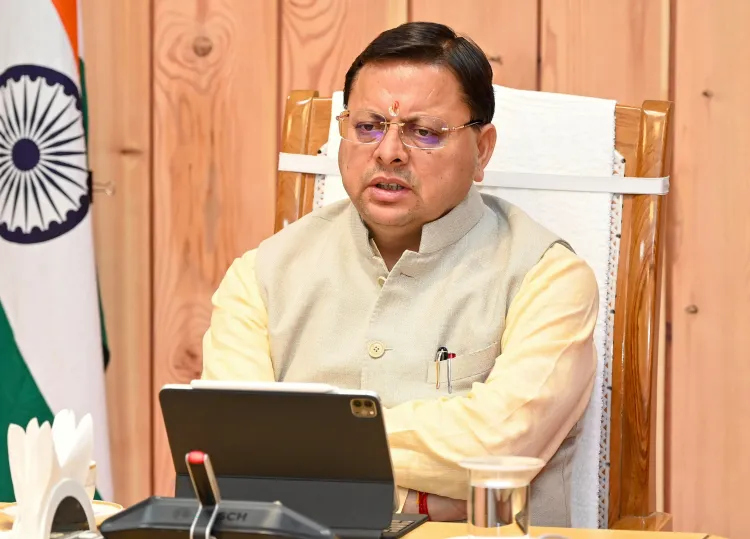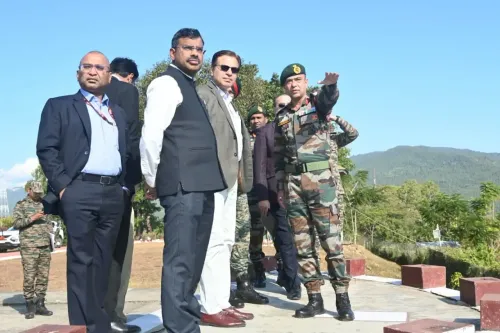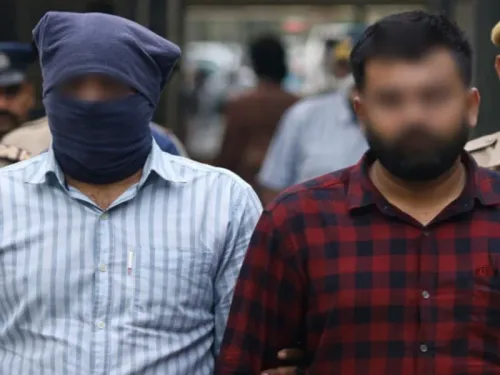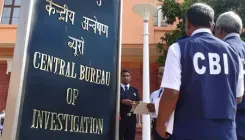U'khand: Are High-profile Arrests and a 71% Conviction Rate Transforming CM Dhami’s Anti-Corruption Efforts?

Synopsis
Key Takeaways
- Robust anti-corruption campaign initiated by CM Dhami.
- 71% conviction rate showcases effectiveness.
- Significant arrests of senior officials across departments.
- Public reporting encouraged through a toll-free helpline.
- Accused officials face suspension until judicial resolution.
Dehradun, July 17 (NationPress) In a bold initiative aimed at reforming Uttarakhand’s administrative framework, Chief Minister Pushkar Singh Dhami has implemented a strict zero-tolerance policy against corruption, leading to a series of impactful actions - both high-profile and systemic.
Over the last four and a half years, the Vigilance Department has executed 82 trap operations, resulting in 94 arrests, which include 13 gazetted officers.
With a remarkable 71% conviction rate, Uttarakhand’s anti-corruption campaign has effectively shifted from mere statements of intent to actual courtroom victories.
Significant cases include the apprehension of senior officials across various departments; a PWD Assistant Engineer in Nainital caught soliciting Rs 10,000; a UPCL Junior Engineer in Dehradun accepting Rs 15,000; and a Roadways AGM (Assistant General Manager) in Kashipur detained for a Rs 90,000 bribe.
The District Excise Officer in Rudrapur was detained for taking a ten percent commission on liquor consignments valued at Rs 10 lakh.
These arrests highlight the extensive nature of the crackdown, covering both technical staff and regulatory authorities.
The Chief Minister has instructed all departments to suspend key responsibilities from the accused officials until judicial outcomes are finalized.
A toll-free helpline (1064) has been established to facilitate public reporting, and the timelines for prosecution in trap cases have been expedited.
According to official statistics, arrests have consistently risen year by year: 7 in 2021; 15 in 2022; 20 in 2023; and 38 in 2024.
As of mid-July 2025, 14 arrests have already been documented. Concurrently, the Uttarakhand Drinking Water Corporation suspended Superintending Engineer Sujit Kumar Vikas following serious allegations of financial misconduct.
This officer allegedly facilitated a transfer of Rs 10 lakh to a company associated with his spouse in exchange for departmental favors.
Despite the opportunity to respond, he did not provide clarification, leading to his immediate suspension.
The Corporation’s Chairman emphasized that the allegations are severe and that Vikas’ presence in Haldwani would negatively impact the morale and integrity of other officials.
He has since been reassigned to the General Manager (Training) office in Roorkee while the inquiry is underway.
This comprehensive strategy - integrating legal prosecution with administrative discipline - marks a pivotal moment in Uttarakhand’s governance, where ethical behavior is not only encouraged but mandated.
Under CM Dhami’s guidance, the state seems committed to reshaping its bureaucratic culture, aiming to restore public confidence through transparency, accountability, and prompt justice.










